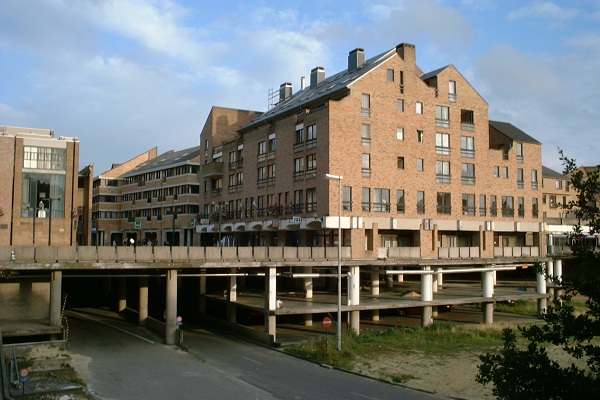In
this week’s edition of The Urbanist, Monocle 24’s weekly radio programme on architecture and urban planning explores the wonders of ‘Concrete’, the material that has become iconic for modernist and contemporary architectural design across the world.
Concrete opened up a new world of opportunities for builders and architects… but did we ever get used to the grey, dull look of it?
In Belgium, the ambiguity surrounding concrete is well illustrated when one heads down to the planned city of Louvain-la-Neuve. A ‘pedestrian only’ town where students and academics meet in the city centre’s cosy streets and alleys. But when asking around, nobody really ever seems to like the aesthetics of things.
The city’s design is made possible by a giant concrete slab that spans over 30,000 square meters. University buildings are planted on top of the slab, while traffic is diverted underneath.

University buildings are planted on top of the concrete slab, while traffic is diverted underground
Louvain-la-Neuve was founded only at the end of the sixties, when the University of Louvain split up in a French speaking part and a Dutch speaking part.
The French speakers were forced to leave the city of Louvain and spent some years scouting Belgium’s empty terrains for a place to settle down. In 1972, the university town of Louvain-la-Neuve was officially opened. Half of the University of Louvain has been lodged in this “new Louvain” or Louvain-la-Neuve ever since.
The urban planners of the Groupe Urbanisme Architecture (GUA) conceived the New Pedestrianist design, with the concrete slab as its figurative cornerstone.
I went to meet with
Pierre Laconte, member of the GUA who was in his mid-thirties when he embarked on what would turn out to be the biggest project of his career. Laconte explains the importance of the slab in the urban design, as well as the ideas behind this pedestrians’ city.

